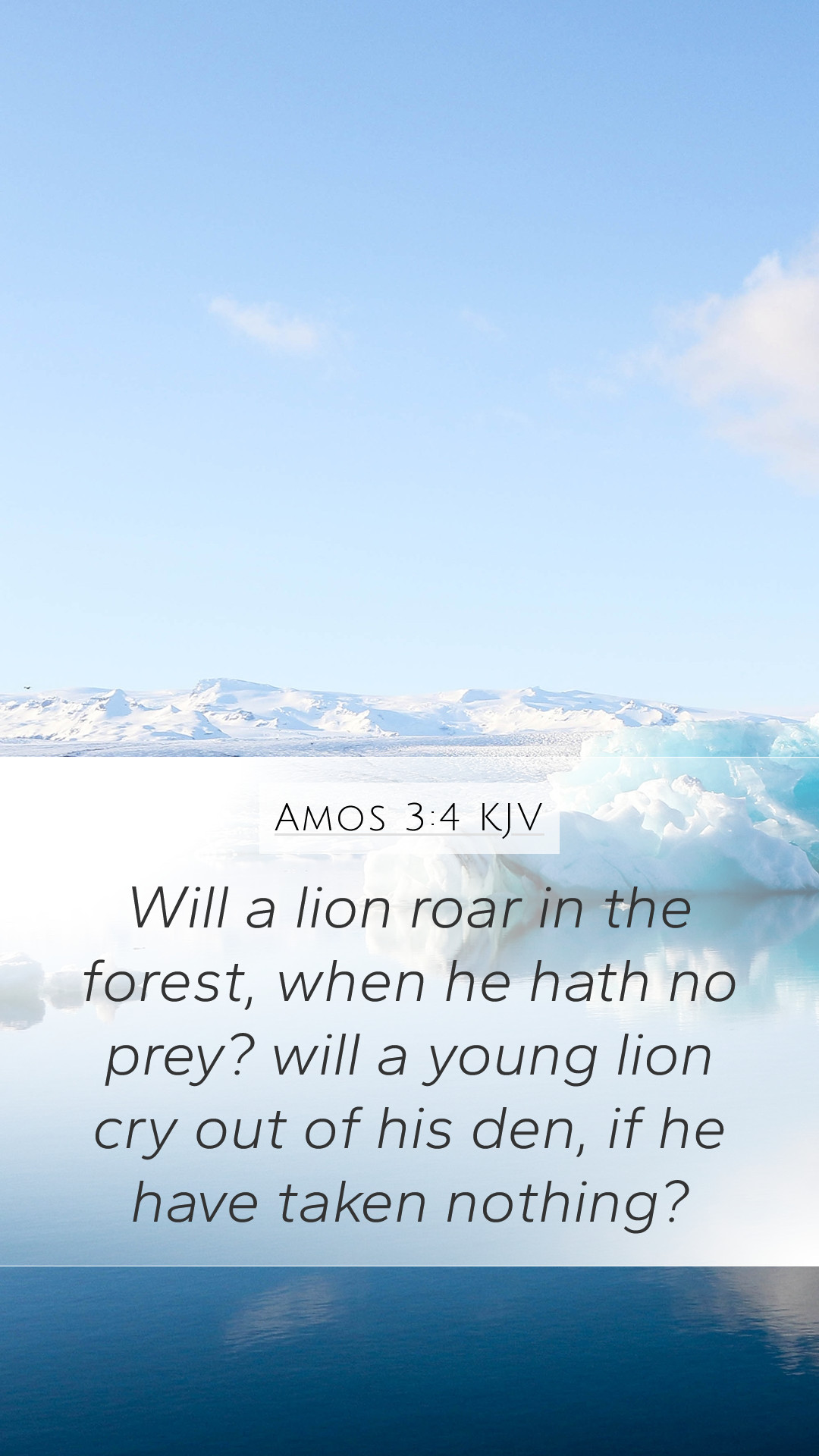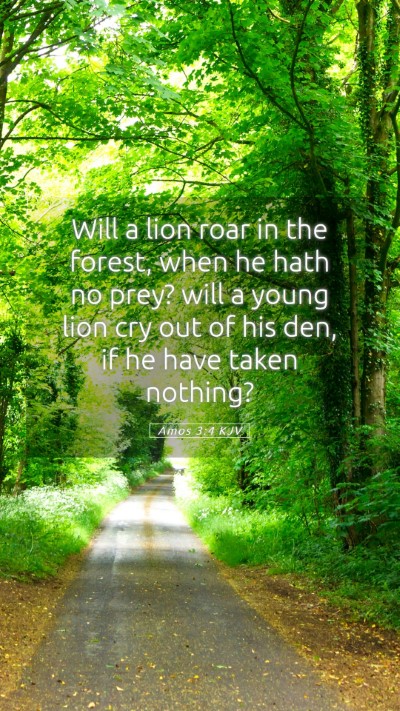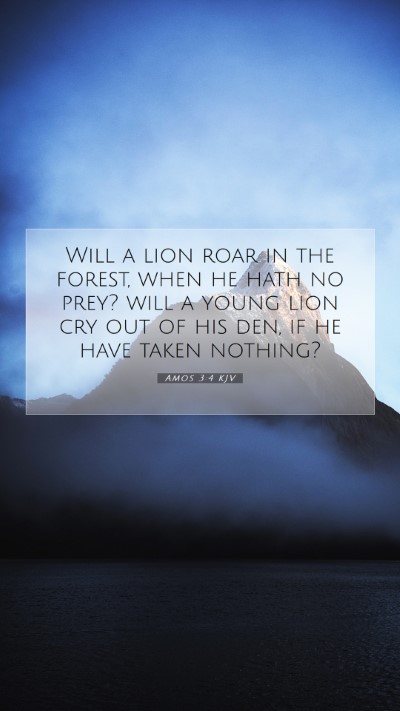Old Testament
Genesis Exodus Leviticus Numbers Deuteronomy Joshua Judges Ruth 1 Samuel 2 Samuel 1 Kings 2 Kings 1 Chronicles 2 Chronicles Ezra Nehemiah Esther Job Psalms Proverbs Ecclesiastes Song of Solomon Isaiah Jeremiah Lamentations Ezekiel Daniel Hosea Joel Amos Obadiah Jonah Micah Nahum Habakkuk Zephaniah Haggai Zechariah MalachiAmos 3:4 Meaning
What is the meaning of Amos 3:4?
Will a lion roar in the forest, when he hath no prey? will a young lion cry out of his den, if he have taken nothing?
Amos 3:4 Bible Verse Meaning
Understanding Amos 3:4
Amos 3:4: "Will a lion roar in the forest, when he hath no prey? will a young lion cry out of his den, if he have taken nothing?"
Overview
This verse serves as a rhetorical question that compares the actions of a lion to the certainty of God's prophecies. Amos uses the imagery of a lion, a symbol of power and authority, to indicate that God will not declare judgment without cause as a lion will not roar if it has no prey.
Bible Verse Commentary
- Matthew Henry: Henry emphasizes that just as a lion's roar signifies its presence and a reason, God’s words of warning and judgment signify His divine authority and the necessity of consequences for sin. He highlights that God only brings forth His judgments when the situation demands it.
- Albert Barnes: Barnes suggests that Amos is illustrating an important principle of divine communication; that God does not act heedlessly but rather with purpose and intention. He interprets the lion’s roar as a metaphor for the prophetic warnings that come as a response to the moral state of Israel.
- Adam Clarke: Clarke points out that the analogy with the lion serves to emphasize that God’s messages have validity and are grounded in actual circumstances that justify His action. He believes that this verse reminds the people of Israel to heed the warnings, knowing that they are signs of God’s discontent with their unfaithfulness.
Key Themes and Insights
This verse calls attention to several significant themes:
- The Certainty of God’s Judgment: Just as a lion roars when it has prey, God's judgments are communicated in response to the moral and spiritual failures of His people.
- The Role of Prophecy: This passage highlights the role of the prophet, whose messages reflect God’s will and intention. Prophets serve as divine messengers who alert the people to God's warnings.
- The Relationship Between Divine Action and Repentance: The verse reminds us of the necessity of our actions in relation to God’s responses; it suggests that God’s silence may not be an absence of judgment but rather a call to repentance before consequence strikes.
Application of the Verse
In applying this verse to our daily lives, we can consider the following:
- Reflect on personal actions and behaviors; understand that God may be calling for change in the face of moral or spiritual dilemmas.
- Recognize the voices of warning in our lives, whether they come through scripture, other believers, or circumstances that may urge us to reconsider our choices.
- Embrace the role of the prophet in your community; share messages of truth and love, akin to being a watchman for those around you.
Cross References
- Isaiah 31:4: "For thus the LORD spake unto me, Like as the lion and the young lion roaring on his prey..." - Discusses the certainty of God’s protection and warning.
- Jeremiah 25:30: "Therefore prophesy thou against them all these words, and say unto them, The LORD shall roar from on high..." - Another instance where God's pronouncement resembles the roar of a lion.
- Ezekiel 18:30: "Therefore I will judge you, O house of Israel, every one according to his ways, saith the LORD God. Repent, and turn yourselves from all your offenses..." - Call for repentance, showcasing God's response to the actions of His people.
Conclusion
Amos 3:4 serves as a powerful reminder of the seriousness of God's prophecies and judgments. The imagery of the lion conveys the certainty and authority behind God's messages. As believers, understanding this verse not only enhances our Bible verse interpretations but also deepens our Bible verse understanding as we navigate our relationship with God.


